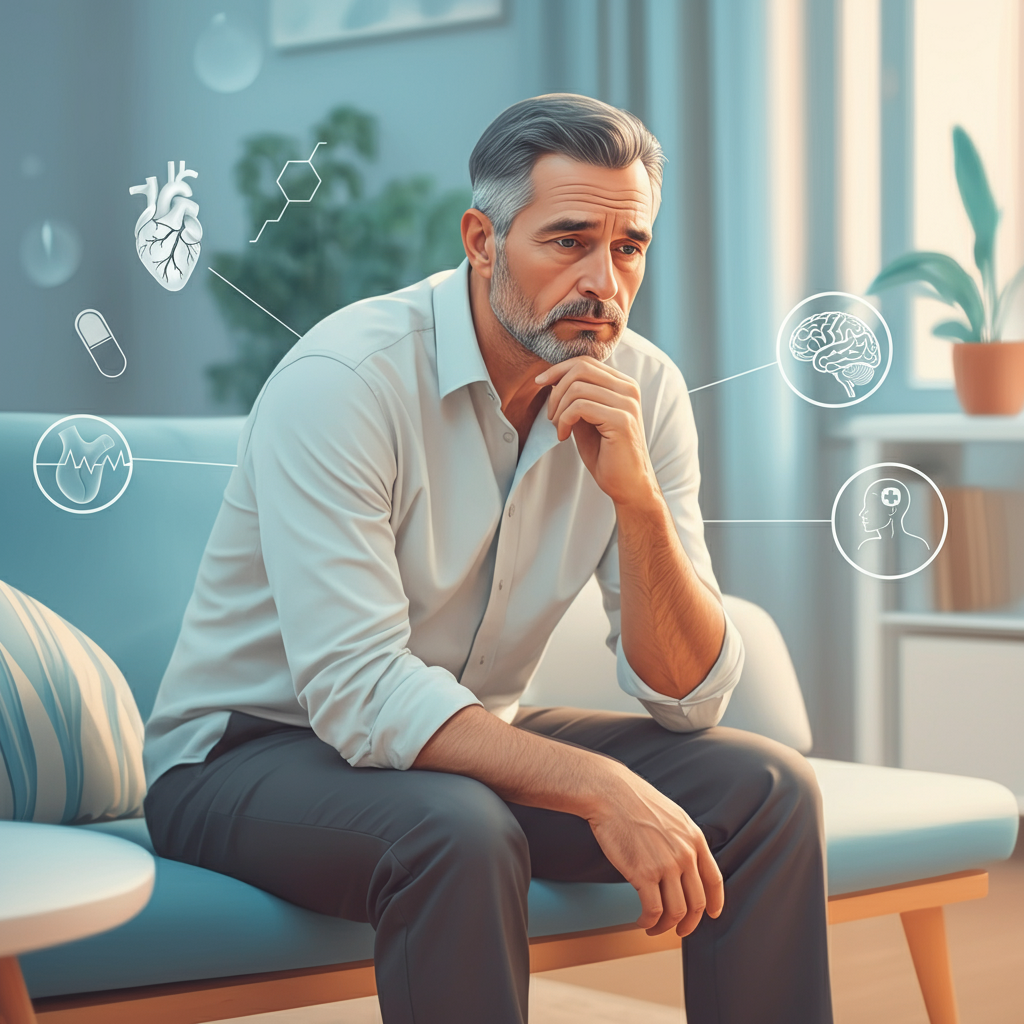Women’s health issues can be like tackling a complicated puzzle. One of the most frequently encountered items that women face can be Polycystic Ovary Syndrome, or PCOS. When you’ve found yourself diagnosed with PCOS or think you might be suffering from PCOS, you’re not the only one. The condition is affecting millions of people around the world. Therefore, knowing the causes and where it came from, and how to treat it can be empowering. This guide is designed to help you understand the fundamentals in a simple and friendly manner.
What Exactly Is Polycystic Ovary Syndrome (PCOS)?
Let’s first decode the term. Polycystic Ovary Syndrome is a hormonal disorder that affects women of reproductive age. The term “PCOS” can be misleading since it is true that, despite the “polycystic” part, not every woman who suffers from PCOS suffers from cysts in their Ovaries. In simple terms, PCOS is a condition that causes an imbalance in the production of hormones that regulate reproduction. The hormonal mix-up could cause issues in the ovaries, which can affect menstrual cycles and could cause a variety of different symptoms.

Think of it as an orchestra with perfect tuning, but the instruments are out of tune. In this scenario, your body might produce more androgens. These hormones are commonly described as “male hormones,” although every woman produces them in small amounts. When the levels are high, this can disrupt the whole hormonal cycle, altering everything from ovulation to the appearance of your skin.
Unpacking the Primary PCOS Causes
A common concern is “Why did I get this?” The reason behind PCOS is still an unanswered question for researchers; however, they have discovered several factors that play a major part. It’s generally not a particular thing; it’s a mixture of lifestyle factors and genetics.
The Role of Genetics
In the beginning, genetics appears to be an important factor. PCOS typically runs in families. If your sister, mother, or aunt suffers from PCOS, the chance of developing the condition is higher. This implies that some genetic factors make someone more susceptible to this disease. Although you cannot alter the genes that cause it, knowing the history of your family could be an important step towards obtaining an earlier diagnosis.
Insulin Resistance: A Key Connection
Another important aspect is insulin resistance. Insulin is a hormone made by the pancreas, which helps your body utilize the sugar in food to generate energy. If your cells are intolerant to insulin, your body is forced to make more to compensate. However, elevated levels of insulin can cause the ovaries to create more androgens. This connection has been proven so effective that 70% women suffering from PCOS are at risk of insulin resistance. This can lead not just to hormonal imbalance, but also to weight gain, which can cause PCOS symptoms to become more severe.
Low-Grade Inflammation
Additionally, studies have shown that women suffering from PCOS generally suffer from a low-grade inflammation that is low-grade. This isn’t like the inflammation that is seen in the result of an accident, but an ongoing, generalized state. This inflammation may trigger the ovaries to make androgens, which can contribute to the hormonal cycle. The cause of this inflammation is currently being researched; however, it is a crucial part of the PCOS puzzle.
Recognizing Common PCOS Symptoms
PCOS is a condition that manifests as a series of symptoms that may differ from person to person. Certain people might experience only minor problems, whereas others may face more serious difficulties. Understanding these signs can be the initial step towards receiving assistance.

Irregular Periods
The most commonly observed manifestation of PCOS is irregular menstrual cycles. It could mean that you have periods that are irregular (fewer than 9 per year), unpredictable, or last for several days. For some women, their menstrual cycles may stop completely. The reason for this is that the hormonal imbalance is affecting the process by which eggs are shed from an ovary. If there is no ovulation process, and the uterine lining isn’t shed regularly.
Physical and Hormonal Signs
In addition to irregular cycle patterns, a variety of PCOS symptoms are evident. In excess, androgen levels may cause:
- Hirsutism: This refers to the growth of dark, coarse hair on areas where men usually develop hair, like the chest, face, and back.
- Acne: The hormones that fluctuate are a common cause of acne. The androgens that are present in PCOS can cause frequent and often painful breakouts, mainly around the jawline.
- Thinning hair: While some suffer from excessive hair growth, others might notice loss of hair or thinning on their scalps, like male pattern hair loss.
Other Important Symptoms
In addition, many women suffering from PCOS have difficulty managing their weight and often find it difficult to lose weight. This is usually due to insulin resistance. The cysts in the ovaries, which give this condition its name, are tiny fluid-filled sacs visible when you look at an ultrasound. They are essentially follicles with embryos that were not developed correctly. In addition, PCOS is a leading cause of infertility due to its effect on the ovulation process.
Exploring Your PCOS Treatment Options
The onset of the PCOS diagnosis may be daunting. It’s crucial to understand that it’s a manageable condition. There’s no universal treatment; however, an array of lifestyle modifications and medical treatments may significantly ameliorate symptoms.

Lifestyle First: Managing PCOS Naturally
The initial step to protect themselves is through lifestyle changes. These adjustments could have a significant influence on hormones and general health.
- The diet and nutritional aspect: Concentrating on a balanced diet is vital. A diet high in whole foods, lean proteins, healthy fats, and fiber can help control the levels of insulin and weight. Cutting down on processed food items, drinks with sugar as well, and refined carbohydrates could make a huge difference. Many have found that a diet that is anti-inflammatory diet helps to reduce the symptoms.
- Regular exercise: Physical activity is an additional pillar of managing PCOS. Exercise improves the body’s insulin sensitivity, which helps to manage hormone levels and aid in weight control. Mixing cardio like swimming or brisk walking as well as strength training is generally advised.
Medical Interventions
If your lifestyle choices aren’t sufficient to improve your condition, your doctor might suggest the use of medical PCOS solutions. They are usually customized to your specific issues and needs, like managing your cycle or wanting to become pregnant.
- Hormonal Birth Control for those who are not trying to get pregnant. Birth control tablets, patches, or rings that contain progestin and estrogen can aid in regulating menstrual cycles, decrease androgen levels, as well as improve the appearance of hair and acne.
- Insulin-Sensitizing Medicine: Metformin and other drugs are frequently prescribed to treat insulin resistance. In addition, by increasing insulin sensitivity, this medication can lower androgen levels, restart the ovulation cycle, and help make cycles more regular.
- Ovulation induction: Women who want to conceive, medicines such as Clomiphene (Clomid) and letrozole (Femara) are used to stimulate the ovaries and cause ovulation.
The experience of living with PCOS is a long-term journey and not a race. It is about learning more about the way your body works, discovering the best treatment for you, and creating a robust support system. By understanding the root causes and symptoms, and researching the options for treatment, to can take charge of your overall health. Keep in mind to be gentle and patient with yourself while you travel this road. You can control your PCOS and lead the life you want to live in a healthy, full way.




